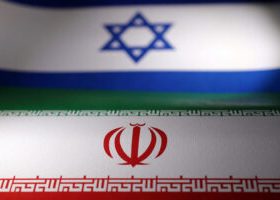BEIRUT – As the co-founder and CEO of a green tech company based in Morocco, Salma Bougarrani said she often finds herself the only woman in the room.
“This isn’t very encouraging. You feel like you’re an extraterrestrial,” said Ms. Bougarrani, 34, whose GREEN WATECH company specializes in using energy efficient techniques to cleanse wastewater as worsening droughts deplete supplies.
Of the 20 firms selected by a business incubator in the North African country last year, Ms. Bougarrani said hers was the only one led by a woman, reflecting women’s limited participation in the job market – especially in leadership roles.
Only 19% of women in Arab countries are part of the labour force – the world’s lowest rate and far below the global average of 48%, according to the International Labour Organization (ILO).
In green jobs, that figure appears to be even lower.
ILO projections suggest that of the 400,000 jobs that could be created for Arab youth as a result of green policy measures less than 10% would be occupied by women, “reflecting the persistent gender inequalities that hamper the region’s progress”, the report said.
Arab women entrepreneurs say gender bias also makes it harder for them to attract investment from regional investors.
In the first nine months of 2022, women-founded businesses in the Middle East and North Africa (MENA) received just 2% of the $2.4 billion in investment channelled into nearly 500 startups, according to a report by Wamda, which advises and invests in regional startups.
More than half of 125 female founders surveyed by Wamda said investors based in the MENA region were less likely to invest in women-led startups compared with international investors.
Almost 66% of the founders said securing investment was the biggest obstacle they faced.
“When you get bigger you have to raise money,” Ms. Bougarrani said, adding that women entrepreneurs are more likely to be rejected when they approach potential investors for financing.
“They think women have more … responsibilities: she will have to take care of children so she won’t be available for work. So, they will prefer … to invest in men,” she told the Thomson Reuters Foundation in a phone interview.
GENDER DISCRIMINATION
Gender bias can make it harder to find clients, too, said Basima Abdulrahman, 37, founder and CEO of KESK, which calls itself the “first Iraqi Greentech company”.
Frustrated that her professional life was not focused on fighting climate change, Ms. Abdulrahman quit her job as a structural engineer with the United Nations and launched KESK.
The company provides solar-powered air conditioning units. They also provide engineering services and equip Iraqi business with solar energy systems.
Despite growing demand for such equipment in a country with strong solar power potential, Ms. Abdulrahman said it had taken her nine months to land her first client.
Convincing buyers, and investors, is a constant battle, she said.
“When I go into a meeting and I know there’s a 99% chance that they’ll say ‘no’ and a 1% chance they’ll say ‘yes’, I’m going to focus on how to convert that 1% to a 100%,” she said.
Besides changing traditional ideas about women’s role, numerous practical hurdles must be overcome for women to have a bigger presence in the labour market – from adequate childcare to parental leave, said feminist researcher Farah Daibes.
A commitment to a more equitable distribution of senior positions among men and women should also include “committing to ending all forms of discrimination and harassment in the work place”, said Ms. Daibes, who works at Friedrich-Ebert-Stiftung, a German political foundation.
MOROCCAN DROUGHT
Ms. Bougarrani’s business plan started off as a childhood dream: she wanted to safely swim in the river that ran through her grandfather’s village of Ait Bouguemez in the Atlas Mountains south of Marrakech.
Growing up, many of the kids around her would get sick with fever and diarrhea after mistakenly drinking while swimming in the waterway.
As climate change fuels more frequent and severe droughts around the world, the low-tech water treatment approach used by GREEN WATECH is helping villagers make better use of limited supplies – for household use, and agriculture.
Last year, the worst drought in decades left Moroccan farmers facing what one industry official dubbed a “catastrophic year” as rainfall was 64% below average, emptying reservoirs that were already depleted.
Since its launch in 2018, GREEN WATECH has installed water treatment systems in 22 Moroccan villages, including Ms. Bougarrani’s grandfather’s.
“The idea was really to listen to the needs of this population and not to import something just to import it,” Ms. Bougarrani said.
Though most of the company’s work is done in the countryside where traditional gender roles tend to be more entrenched, over half of its employees are women – including all of the engineers, Ms. Bougarrani said.
“For women it’s natural to think about the next generation, and this is what we’re doing very well,” she said. – Reuters






